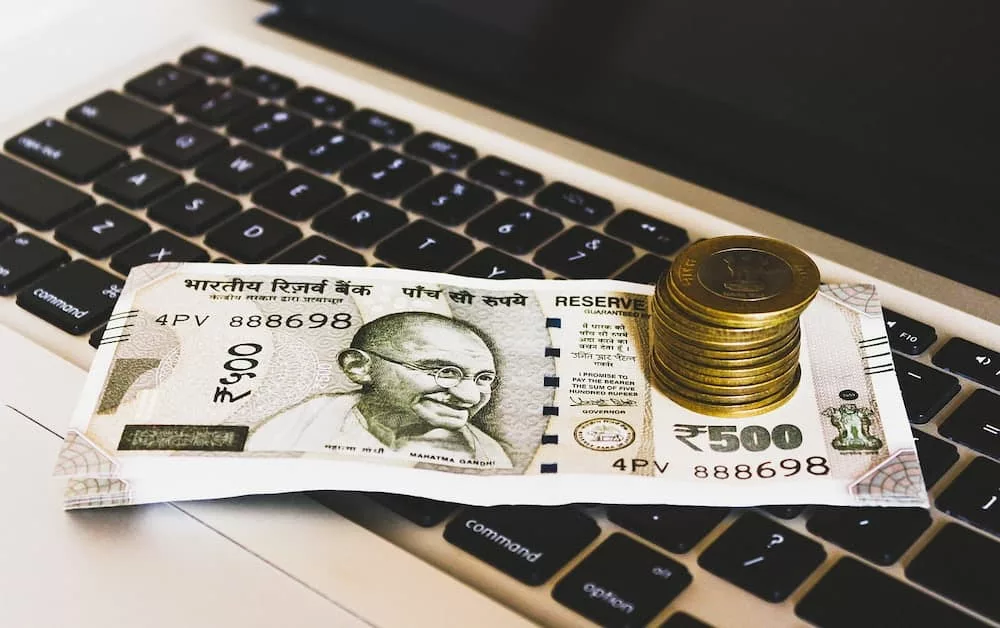Introduction
The Digital Personal Data Protection Act (DPDPA), which was enacted on August 11, 2023, is a significant milestone for India’s 1.4 billion citizens as it guarantees data privacy rights and empowers individuals with control over their digital personal data. This landmark legislation provides an extensive framework to safeguard sensitive information and ensures that organizations must comply with specific regulations when collecting, storing, processing, or sharing personal data. The DPDPA sets guidelines for obtaining valid consent, data usage limitations, and breach notification requirements. With the implementation of this act, individuals now have the right to access, correct, transfer, or erase their personal information from any organization’s database. Overall, the DPDPA represents a critical step towards strengthening India’s digital ecosystem and promoting a culture of privacy and data protection.
Applicability and scope
The Digital Personal Data Protection Act (DPDPA) regulates the processing of digital personal data, regardless of whether it is collected online or offline. The bill sets out a comprehensive framework that governs the activities of data fiduciaries, who must abide by certain principles and rules for processing personal data. The DPDPA aims to ensure accountability and transparency in data processing by requiring data fiduciaries to provide clear and concise information about how personal data is being processed.
Key definitions
Understanding key terms is crucial. A sata fiduciary is an entity that processes personal data, while data principals are individuals to whom the data relates. India’s Digital Personal Data Protection Act (DPDPA) also introduces the concept of significant data fiduciaries, emphasizing heightened responsibilities for entities dealing with large-scale data processing.
Personal information: The DPDPA defines personal information as data that relates to a natural person, either directly or indirectly, and is capable of identifying the individual. This encompasses a broad range of details, emphasizing the need for protection and responsible processing.
Sensitive personal information: The Act distinguishes sensitive personal data, which includes data revealing aspects like passwords, financial information, health records, sexual orientation, biometric data, and more. This classification imposes additional safeguards due to the heightened privacy concerns associated with such information.
Processing of personal data: The DPDPA outlines the concept of processing personal data, covering any operation performed on personal data, from collection to storage and use. This broad definition ensures comprehensive coverage of activities involving individual information.
Deemed consent: The Act moves away from the ‘deemed consent’ concept for processing personal data. Instead, it establishes explicit requirements for obtaining consent, emphasizing clear affirmative actions by the data principal.
Personal data breach: Under the DPDPA, a personal data breach is defined as the accidental disclosure of personal data compromising its confidentiality, integrity, or availability. This definition aids in identifying and addressing breaches promptly.
Confidentiality, integrity, and availability: The Act specifies that a personal data breach compromises the data’s confidentiality, integrity, or availability. These principles guide the understanding and evaluation of breaches, ensuring a holistic approach to data protection.
Data principal: The term ‘data principal’ refers to the individual to whom the personal data relates. The Act strongly emphasizes empowering data principals with rights and control over their information.
Data fiduciary: Entities that are data processors are termed data fiduciaries. The Act establishes obligations and responsibilities for data fiduciaries, promoting ethical and accountable data processing practices.
Significant data fiduciary: The DPDPA introduces the concept of significant data fiduciaries, indicating entities engaged in large-scale data processing. These entities bear additional responsibilities, acknowledging the potential impact of their operations on a broader scale.
The key definitions within India’s DPDPA set the groundwork for a comprehensive and nuanced digital personal data protection approach. By clearly defining terms such as personal information, sensitive personal information, and data processing, the legislation aims to create a robust framework that balances privacy rights with the legitimate needs of data processing entities.

Rights of data principals
India’s Digital Personal Data Protection Act (DPDPA) grants robust rights to data principals, empowering individuals with control over their personal data. Some key rights include:
Right to information: Data principals have the right to obtain information regarding processing their personal data, ensuring transparency and awareness of data handling practices.
Right to correction and erasure: The DPDPA provides individuals with the right to seek correction of inaccuracies in their personal data and request the erasure of data under certain circumstances.
Grievance redressal: Individuals have the right to address grievances related to processing their personal data, ensuring a mechanism for dispute resolution.
Nomination rights: Data principals can nominate another individual to act on their behalf in case of death or incapacitation, enhancing representation in data-related matters.
These rights collectively empower data principals, promoting privacy, control, and accountability in handling their personal information.
Data breach reporting
India’s Digital Personal Data Protection Act (DPDPA) introduces stringent measures to ensure transparent and accountable handling of personal data incidents, particularly concerning data breaches. Organizations must promptly report such data breaches to the Data Protection Board of India and the affected individuals within a specified timeframe. This reporting requirement aims to uphold transparency and accountability in the management of data breaches, fostering a secure data environment.
In the event of a data breach, affected individuals are required to engage with the data fiduciary’s grievance redressal process before escalating the matter to the Data Protection Board. This consultation step ensures that individuals have a direct channel to address concerns and seek resolution regarding the breach.
Furthermore, organizations must promptly notify affected individuals about the data breach. This notification must include comprehensive details about the nature of the breach, the specific data compromised, and the mitigation measures adopted. Transparency in communication is crucial for individuals to understand the impact of the breach and take necessary precautions.
The DPDPA emphasizes the importance of organizations implementing robust measures for preventing, detecting, and responding to data breaches. By enforcing these provisions, the legislation aims to enhance data security and protect the rights of individuals in the face of potential data breaches.
Data Protection Board of India
India’s Digital Personal Data Protection Act (DPDPA) establishes a dedicated regulatory body, the Data Protection Board of India. This data protection authority plays a pivotal role in overseeing and enforcing the provisions outlined in the DPDPA. The Board’s responsibilities include monitoring the processing of digital personal data within India, addressing grievances related to data protection, and ensuring compliance with the stipulations of the DPDPA.
The Data Protection Board of India is empowered to act against entities violating data protection regulations. It acts as a regulatory watchdog, safeguarding the rights of data principals and ensuring that data fiduciaries adhere to fair and transparent data processing principles.
This regulatory framework signifies India’s commitment to fortifying data protection measures and fostering a secure digital environment. The establishment of the Data Protection Board underscores the government’s dedication to upholding individuals’ privacy rights and maintaining the integrity of digital personal data within the country.
Role of Data Protection Officer
The Digital Personal Data Protection Act (DPDPA) of India mandates the appointment of a Data Protection Officer (DPO) by significant data fiduciaries. The DPO plays a crucial role in ensuring compliance with the provisions of the DPDPA. Their responsibilities encompass overseeing data audits, managing compliance, and performing tasks outlined in the law to guarantee the protection of digital personal data.
The DPO is a key liaison between the fiduciary, data principals, and regulatory authorities. They are responsible for implementing and maintaining a robust data protection framework, conducting regular assessments, and addressing any concerns related to data privacy. Additionally, the DPO facilitates communication with the Data Protection Board of India, ensuring transparency in data processing activities.
Consent Managers and data processing
The DPDPA introduces the role of Consent Managers, a critical aspect of data processing under the new legislation. Consent Managers play a pivotal role in facilitating the interaction between Data Principals (individuals) and Data Fiduciaries (organizations processing data). The DPDPA mandates that Consent Managers must be registered with the Data Protection Board of India (DPB) and comply with the requirements set by the DPB.
Consent Managers assist Data Principals and Data Fiduciaries in managing, reviewing, giving, and withdrawing consent for the processing of personal data. This emphasizes the importance of obtaining explicit consent from individuals before their personal data is processed, aligning with the DPDPA’s commitment to prioritizing consent as the primary basis for data processing. The Consent Manager is accountable to the Data Principal and acts on their behalf, ensuring that individuals have control over their data and are well-informed about its usage.
This innovative approach underscores the DPDPA’s commitment to empowering individuals with greater control over their digital personal data and ensuring transparent and ethical data processing practices.

Technical and organizational measures
India’s Digital Personal Data Protection Act (DPDPA) underscores the importance of implementing robust technical and organizational measures by data fiduciaries. These measures are essential for ensuring the security and protection of digital personal data. The DPDPA mandates that businesses and entities processing personal data adhere to stringent safeguarding standards.
Data security implementation: The Act requires data fiduciaries to implement appropriate technical measures to secure digital personal data. This includes encryption, access controls, and other cybersecurity measures to prevent unauthorized access and data breaches.
Organizational measures: Alongside technical safeguards, the DPDPA emphasizes the implementation of organizational measures. This involves establishing internal policies, procedures, and practices that contribute to a comprehensive data protection framework. These measures ensure a holistic approach to data security within organizations.
Data deletion protocols: The Act mandates the deletion of personal data that is no longer necessary for the purpose for which it was collected. This ensures that data is not retained indefinitely, minimizing the risks associated with prolonged data storage.
Security training and awareness: The DPDPA encourages entities to roll out security and privacy training programs for employees and contractors to reinforce technical and organizational measures. This promotes a culture of data protection within organizations.
Role of central government
The central government assumes a critical role in the oversight and implementation of India’s Digital Personal Data Protection Act (DPDPA). This legislation delineates specific responsibilities and powers granted to the central government, emphasizing its pivotal position in ensuring the effective functioning of the regulatory framework.
One key aspect of the central government’s role is its oversight of data transfers. According to DPDPA Section 16, the legislation permits the free transfer of personal data to countries or territories outside India. However, the central government retains the authority to specify exceptions to this rule, ensuring that data transfers align with national interests and security concerns.
Additionally, the central government holds the power of delegated legislation under the DPDPA. This authority enables the formulation of detailed rules and regulations under the Act, providing flexibility for the government to adapt and refine specific aspects of the DPDPA as needed.
The DPDPA also allows for the processing of data by government instrumentalities for specific purposes. This includes activities such as enforcing legal rights and ascertaining financial information, highlighting the government’s active involvement in certain data processing activities.
Furthermore, the central government, through designated officials, is tasked with ensuring compliance with the DPDPA. This involves managing data audits and overseeing the tasks outlined for Data Protection Officers (DPOs) under the law.
Data processing for medical emergencies and national security
India’s Digital Personal Data Protection Act (DPDPA) addresses the processing of personal data in specific contexts such as medical emergencies and national security.
Medical Emergencies
Under the DPDPA, data processing for medical emergencies involving data principals is permitted for specified purposes. This provision acknowledges the critical need for data utilization in situations where individuals’ health and safety are at risk. The Act allows for the processing of personal data to support medical interventions, ensuring a balance between privacy rights and the urgency of healthcare scenarios. This aligns with the broader objective of safeguarding individuals’ well-being while upholding data protection standards.
National Security
While emphasizing personal data protection, the DPDPA recognizes the importance of national security. Specific provisions within the Act address the balance between protecting individual privacy and allowing data processing for national security purposes. These measures are designed to safeguard the nation’s interests, and certain exceptions may apply to ensure effective security protocols without compromising essential privacy rights.

Conclusion
The Act, enacted in 2023, brings forth a comprehensive set of regulations and principles designed to address the complexities of data processing and ensure the responsible handling of personal information. One of the key pillars of the DPDPA is the emphasis on individual rights and consent. The Act places consent at the forefront, making it the primary basis for processing personal data. This approach reflects a commitment to empowering data principals, allowing them to exercise control over their information through mechanisms like Consent Managers.
The significance of the DPDPA extends beyond individual rights to encompass broader operational impacts. It seeks to streamline existing rules, promote regulatory certainty, and foster innovation, signaling a shift towards a more cohesive and modernized data protection landscape.
In conclusion, India’s DPDPA emerges as a pivotal legislative milestone, reflecting the nation’s commitment to protecting personal data in alignment with global standards. As the digital landscape evolves, the DPDPA serves as a comprehensive and forward-looking framework, addressing the intricacies of data protection in the contemporary era.




